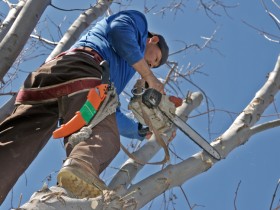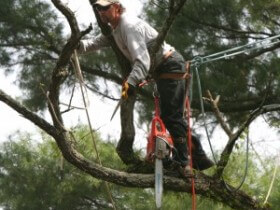Gardening can be an extremely relaxing hobby, and one of the best things about it is that it is easy on the wallet. Family or friend time working in the garden may be a fabulous way to spend time with each other. Children find the observation of growing plants utterly fascinating, and they will make a habit out of monitoring the evolution of seed to blooming. Horticulture is also an excellent way to get a new-found appreciation of the outdoors and nature. This article will make it simpler for you to love horticulture, so that you may even have others help you.
Properly lay your sod. Before laying the sod, have your soil prepared. Pull all the weeds and loosen the soil so the new roots can take easily. Compress the soil lightly yet firmly, and make certain it’s flat. Dampen the soil completely. The optimum layout of sod rows is to stagger them with offset joints. Make sure the sod is firmly placed to ensure a surface that is sufficiently flat and even. Also, make sure to use soil to fill the areas where there are gaps in the sod. According to your climate, you will likely need to water the new sod daily over a period of a couple of weeks. This will insure proper root formation and establishment.
Plant perennials that slugs and snails won’t be interested in eating. Snails and slugs can destroy plants in just one night. These pests are especially attracted to tender sprouts and to delicate, soft leaves. Slugs and snails will leave some perennials alone, particularly those with a bad taste or tough, hairy leaves. Examples of these include euphorbia, hellebourus and achillea. Others you may want to consider are campanula and heuchera.
Healthy Soil
The first thing you can do to ward off garden pests is to ensure you are using healthy soil in your garden. Healthy soil leads to healthy plants with more strength to deflect those insects and various diseases. If you want to get the best plants, begin with a soil that has hardly any chemicals, and that will bring salts.
There are home solutions available to combat the powdery mildew you may find on your plants. A great home remedy is to mix baking soda with water and a little bit of liquid soap. Spray this mix on your plants every week and the mildew should go away. The baking soda is harmless to your plants and a very effective remedy.
For areas with high alkaline, mix coffee grounds into the soil. Coffee grounds are an affordable means of adding acid to the soil so that it is pH-balanced. The greens and vegetables need the proper balance and will grow bigger and stronger with the right mix.
To ensure a healthy garden, make sure you surround your plants with a few inches of good organic mulch. The mulch will help keep the dirt around the plants more moist. It will also dramatically decrease weed growth. This can save you a lot of time and effort in pulling out the weeds.
Whether you wish to garden alone or with a loved one, the tips in this article will make the experience more fun. You can take what you’ve learned here, and show your family how amazing the hobby is, enjoying it with them as often as you wish.
Learning about your product has both long and short term benefits. Read this article a few times to fully understand it. Then, continue learning until you are a master in your field.




